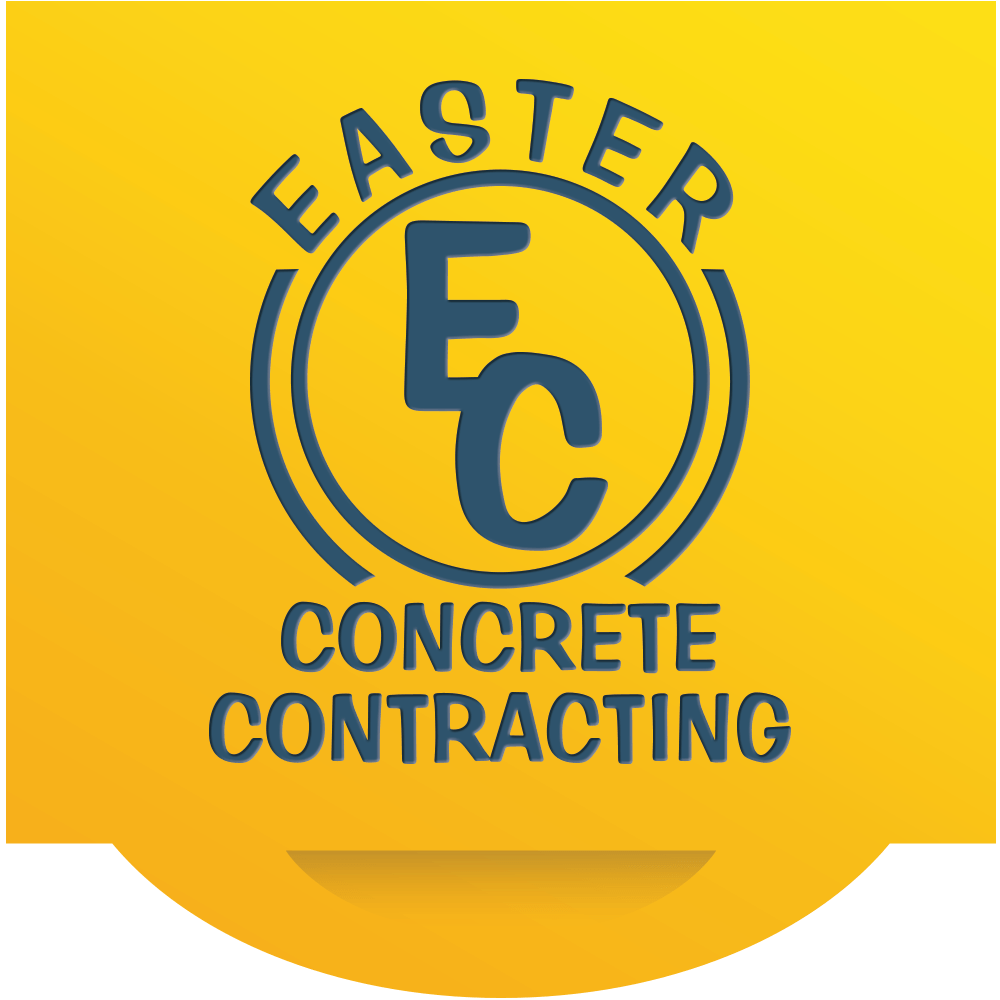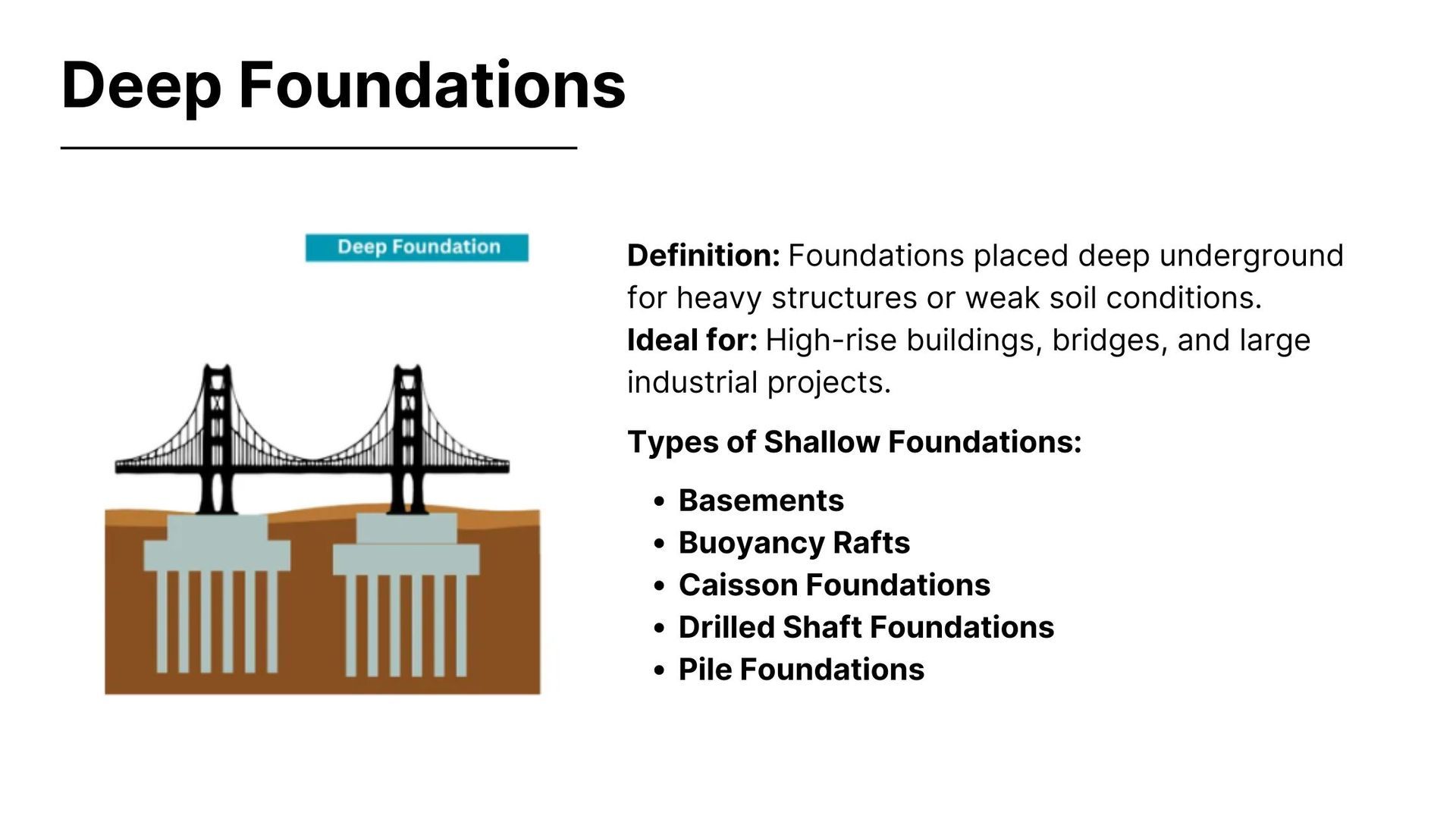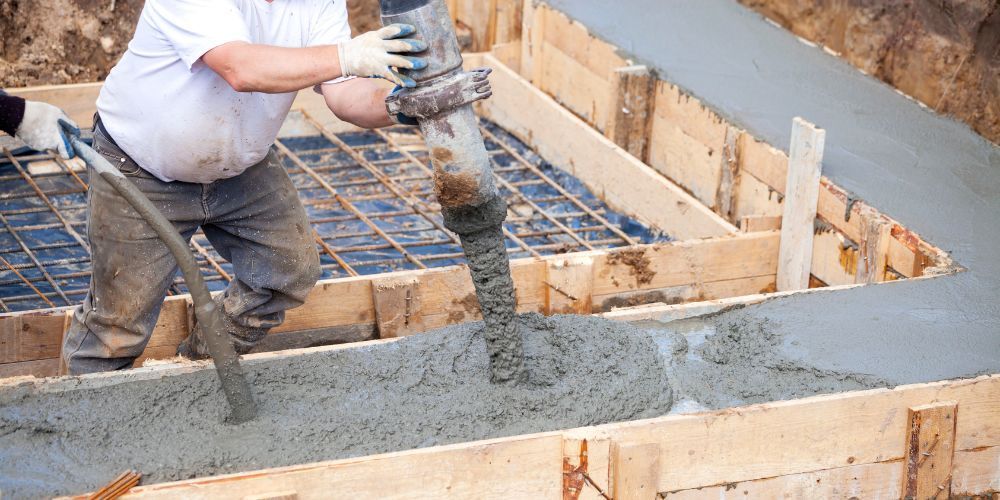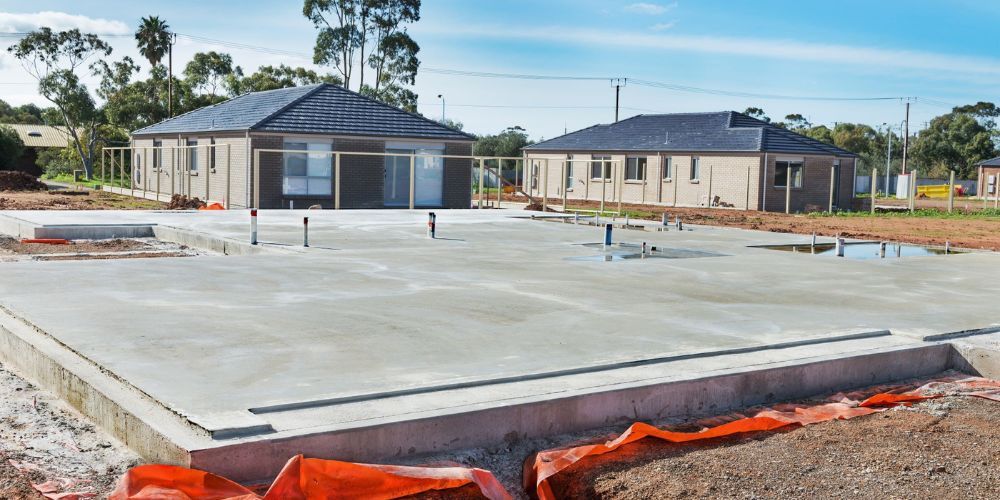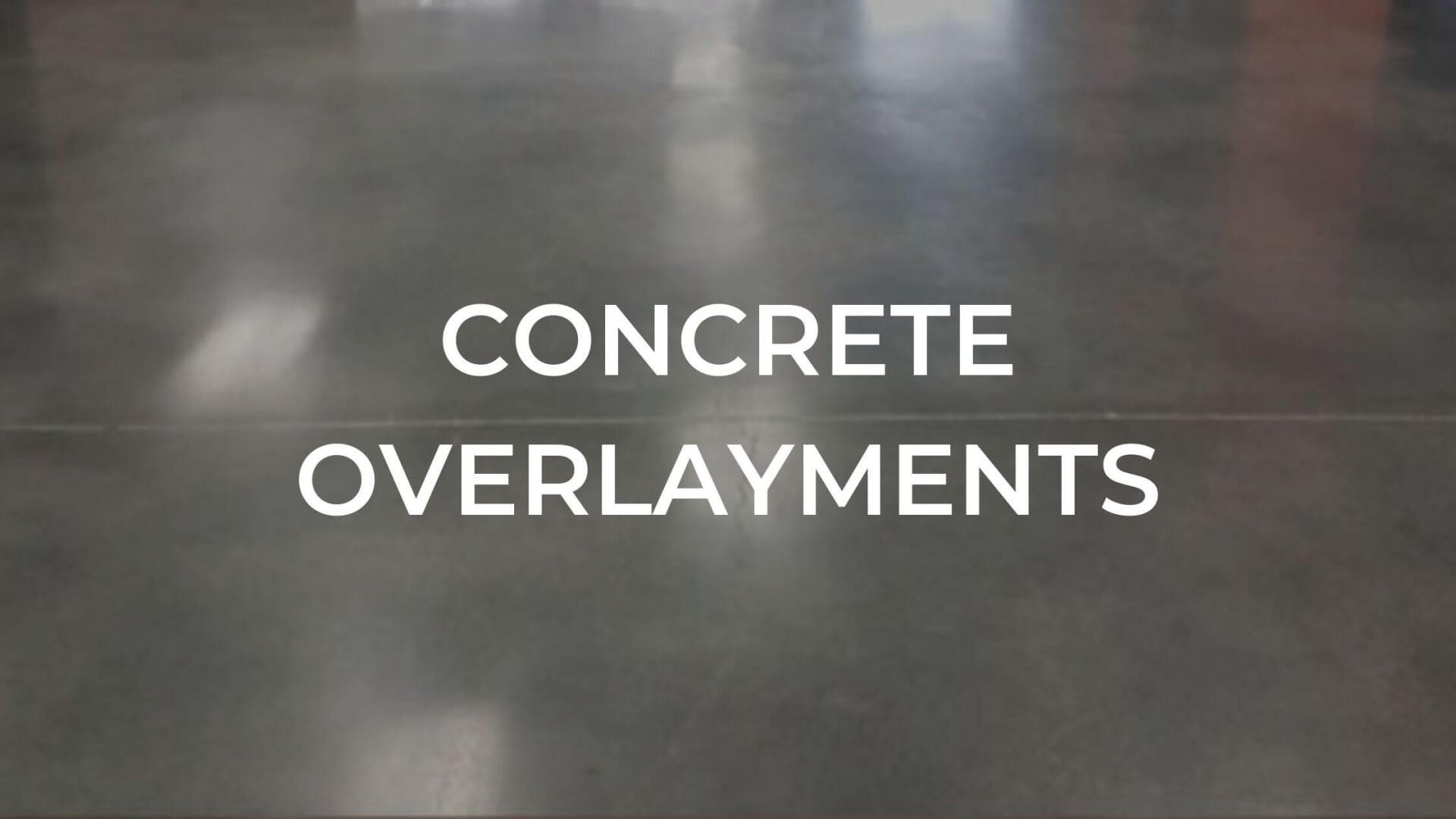Concrete Block Foundation VS Poured Concrete Foundation
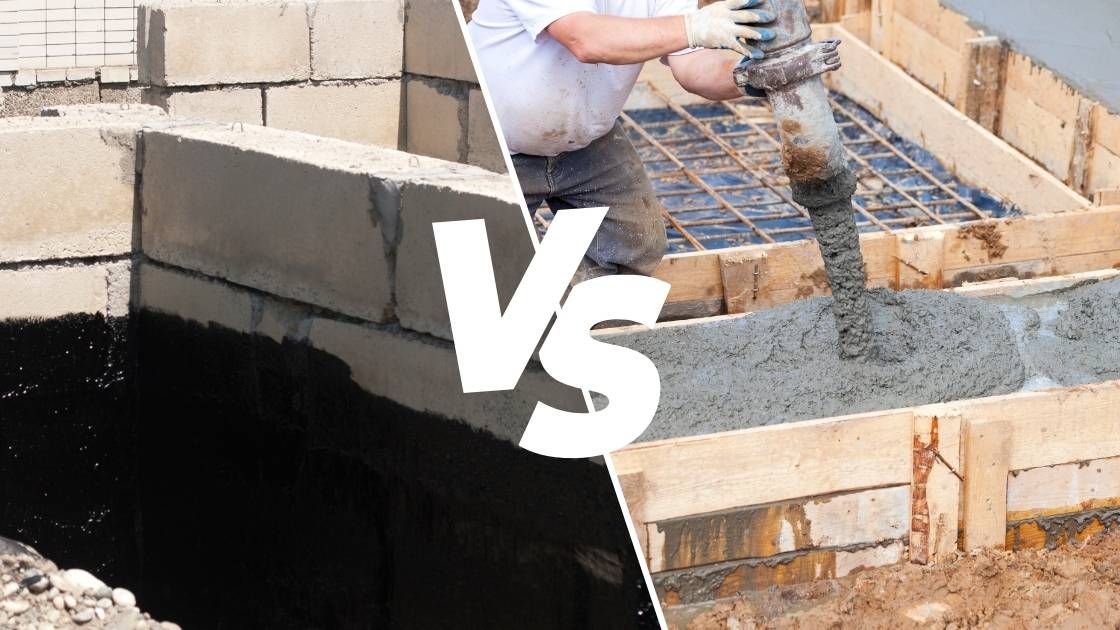
A strong building relies on a solid foundation for supporting and stabilizing the structure. The foundation distributes weight evenly and protects the building from shifting, settling, and environmental stresses such as wind and earthquakes. It also acts as a barrier against moisture, helping prevent mold and deterioration.
Concrete foundations are a popular choice due to their durability and long lifespan. They offer excellent resistance to environmental damage and can be customized to meet various building requirements.
There are two main types of concrete foundations: concrete block foundations and poured concrete foundations. Understanding the differences between these options can help you choose the best one for your needs.
What is a Concrete Block Foundation?
A Concrete block foundation is a type of foundation that is made by laying blocks of pre-formed concrete. The blocks are mortared together to create a solid foundation for the home. Concrete block foundations are also known as cinder blocks or concrete masonry unit foundations. These foundations are less common than poured foundations but are still a popular option in certain regions.
Benefits of Concrete Block Foundation
- Concrete block foundations are less expensive than poured foundations. They require less concrete, labor, and equipment, making them a more cost-effective option.
- Concrete block foundations can be quicker to install than poured foundations. They can be laid quickly and efficiently by a larger crew, which can speed up the building process.
- Concrete block foundations can be more flexible than poured foundations. They are less likely to crack or break under pressure, making them better suited for areas prone to earthquakes or high winds.
- Concrete block foundations can be easier to repair than poured foundations. If there is a leak or water infiltration, it is easier to locate and repair the damaged block.
Drawbacks of Concrete Block Foundation
- Concrete block foundations are less durable than poured foundations. They are more likely to crack or shift over time, which can lead to structural issues with the home.
- Concrete block foundations can be less energy efficient than poured foundations. They have more joints and gaps, which means more air leakage and heat loss.
- Concrete block foundations can be more labor-intensive than poured foundations. They require many more workers to lay each block, which can add to the cost and time of the building process.
- Concrete block foundations are not as customizable as poured foundations. They are limited to the standard size and shape of the blocks, which can make it harder to fit the foundation to the unique shape of the home.
What is a Poured Concrete Foundation?
A poured concrete foundation is a type of foundation that is made by pouring liquid concrete into a mold or form. Once the concrete is poured, it is smoothed and leveled to create a flat surface that will support the home. Once the concrete has cured, it will harden into a solid, durable foundation. Poured concrete foundations are the most common type of foundation used in residential construction.
Benefits of Poured Concrete Foundation
- Poured concrete foundations are more durable than block foundations. They are less likely to crack or shift over time, providing a stronger and more stable base for the home.
- Poured concrete foundations can be customized to the specific needs of the building. They can be poured to different thicknesses, widths, and lengths, allowing them to better fit the unique shape of the home.
- Poured concrete foundations are more energy-efficient than block foundations. They have fewer joints and gaps, which means less air leakage and heat loss.
- Poured concrete foundations are less labor-intensive than block foundations. They only require a small crew to pour the concrete, whereas block foundations require many more workers to lay each block.
Drawbacks of Poured Concrete Foundation
- Poured concrete foundations are more expensive than block foundations. The cost of the concrete, labor, and equipment needed to pour the foundation can add up quickly.
- Poured concrete foundations can take longer to cure than block foundations. They require more time to dry and harden, which can slow down the building process.
- Poured concrete foundations can be more susceptible to damage from water. If there is a leak or water infiltration, it can be harder to locate and repair than with a block foundation. Learn essential tips for protecting your foundation against water damage.
- Poured concrete foundations are not recommended for areas prone to earthquakes or high winds. They are more rigid and may crack under these conditions.
Both poured and block concrete foundations have their benefits and drawbacks, and the best option for your building project will depend on a variety of factors, including the type of structure, the climate, and your budget. Poured concrete foundations are a great choice for large, custom structures and are highly durable and long-lasting, but they can be more expensive and require more space than block concrete foundations. Block concrete foundations are a cost-effective option for smaller structures and are ideal for areas where space is limited, but they may be less customizable and more susceptible to damage from pests and moisture.
.If you're looking for a reliable and experienced concrete contractor in San Antonio, Texas, or its surrounding areas, consider contacting Easter’s Concrete Foundation Services. We have the expertise and knowledge to help you choose the right foundation for your building project and will work with you to ensure a high-quality finished product. Don't hesitate to reach out to us for all your concrete needs.
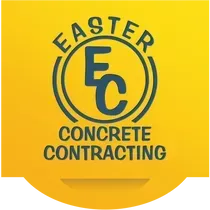
At Easter Concrete Contracting, we're large enough to handle all your concrete and construction needs with expertise and experience, yet small enough to value and appreciate each individual project


